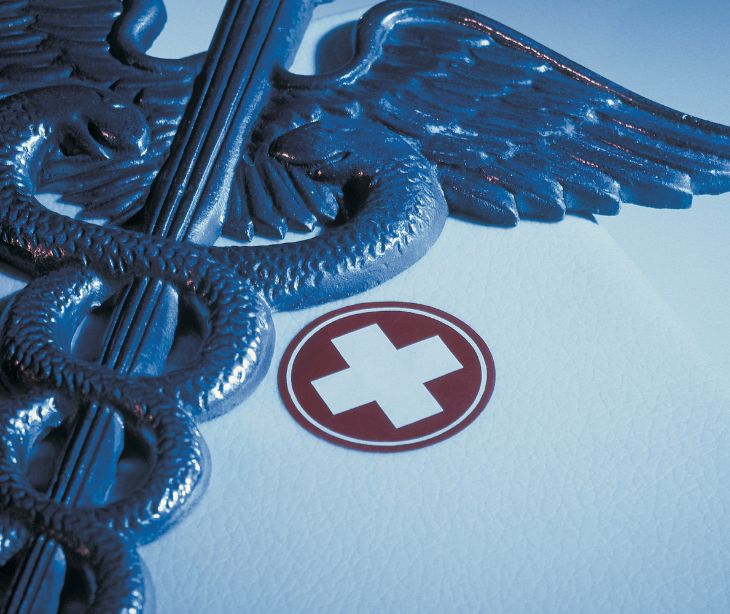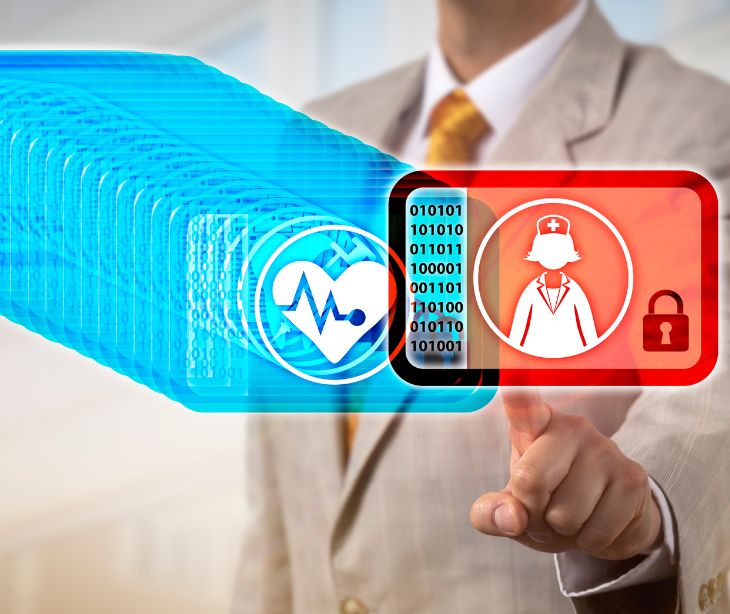
The CIA triad - confidentiality, integrity, and availability - forms the bedrock of HIPAA compliance for healthcare organizations. Confidentiality ensures that unauthorized individuals cannot access sensitive patient information. At the same time, integrity prevents unauthorized alteration or destruction of protected health information (PHI). Availability focuses on the continuous functioning of systems and hardware that store and provide access to PHI.
By prioritizing the CIA triad and implementing an effective compliance program, healthcare organizations can safeguard PHI and meet HIPAA requirements.
Understanding the HIPAA security rule
The HIPAA security rule sets national standards that healthcare entities must adhere to to protect PHI's confidentiality, integrity, and availability. PHI refers to any demographic information that can be used to identify a patient, such as names, addresses, telephone numbers, Social Security numbers, and medical records. When PHI is stored electronically, it is known as electronic protected health information (ePHI).
Organizations must implement administrative, technical, and physical security measures to ensure compliance with the HIPAA security rule. These safeguards address potential vulnerabilities and mitigate the risks associated with unauthorized access, alteration, or destruction of PHI.
Administrative safeguards
Internal policies, procedures, and employee training are administrative safeguards that help maintain PHI's confidentiality, integrity, and availability through documented security frameworks.
Technical safeguards
Technical safeguards focus on network and data security. They involve measures to reduce the risk of cybersecurity incidents, especially related to the improper transmission of ePHI or malware. Implementing encryption protocols, firewalls, and access controls are examples of technical safeguards that protect the integrity of PHI.
Physical safeguards
Physical safeguards protect the physical premises of healthcare organizations and the infrastructure that can access ePHI. Measures such as locks, security systems, and restricted access areas help prevent unauthorized access to PHI during a break-in or theft. Physical safeguards reinforce the availability of PHI and help maintain its integrity.
See more: What are administrative, physical, and technical safeguards?
The HHS breakdown
“The Security Rule requires covered entities to maintain reasonable and appropriate administrative, technical, and physical safeguards for protecting e-PHI.
Specifically, covered entities must:
- Ensure the confidentiality, integrity, and availability of all e-PHI they create, receive, maintain, or transmit;
- Identify and protect against reasonably anticipated threats to the security or integrity of the information;
- Protect against reasonably anticipated, impermissible uses or disclosures; and
- Ensure compliance by their workforce.”
The importance of confidentiality
Confidentiality is a fundamental aspect of the CIA triad and focuses on ensuring the privacy of PHI. Organizations must have physical, technical, and administrative safeguards in place to maintain the confidentiality of PHI.
These safeguards prevent unauthorized individuals from accessing or disclosing sensitive patient information. To uphold confidentiality, healthcare organizations should provide cybersecurity awareness training to individuals authorized to access PHI.
Upholding integrity
Integrity, as defined by the CIA triad, is concerned with preventing unauthorized alteration or destruction of PHI. Healthcare professionals must ensure that PHI remains unchanged throughout its lifecycle, particularly during transmission. Monitoring data closely and implementing systems to detect improper or unauthorized changes to PHI are significant for upholding integrity.
See also: HIPAA Compliant Email: The Definitive Guide
Ensuring availability
Availability refers to the continuous functioning of systems and hardware that store and provide access to PHI. Healthcare organizations must keep all systems up-to-date and protected against threats that disrupt PHI access.
Regular data backups and encryption are necessary for maintaining availability in the face of cybersecurity incidents. Backing up data ensures that PHI can be restored in case of a breach or human error. Encryption protects the transmission of PHI and defends against malware or ransomware attacks that increasingly target healthcare organizations due to the value of medical data.
The Synergy of the CIA triad
Adhering to the triad alone cannot satisfy legal requirements or protect organizations from data breaches and penalties. HIPAA compliance is a complex set of national standards that must be addressed by implementing an effective compliance program.
Go deeper:
- How to develop HIPAA compliance policies and procedures
- 7 elements of a compliance program
- Understanding HIPAA violations and breaches
FAQs
How does HIPAA's Security Rule relate to the confidentiality, integrity, and availability of e-PHI?
The Security Rule specifically addresses the protection of e-PHI by requiring covered entities to implement safeguards that ensure confidentiality, integrity, and availability.
Are there specific technologies that HIPAA recommends to protect the confidentiality of e-PHI?
While HIPAA does not endorse specific technologies, it does recommend encryption and access controls as effective methods for protecting the confidentiality of e-PHI.
What is the relationship between data integrity and patient safety under HIPAA?
Maintaining data integrity is necessary for patient safety, as inaccurate or altered e-PHI can lead to incorrect diagnoses, treatment plans, and medical errors.
How does HIPAA address the availability of e-PHI in emergencies?
HIPAA requires covered entities to have contingency plans, including data backup and disaster recovery strategies, to ensure e-PHI remains available during emergencies.
What are the penalties for failing to protect the confidentiality, integrity, or availability of e-PHI?
Penalties can include substantial fines, corrective action plans, and increased oversight by the Department of Health and Human Services (HHS), depending on the severity of the violation.
See also: HIPAA Compliant Email: The Definitive Guide
Subscribe to Paubox Weekly
Every Friday we'll bring you the most important news from Paubox. Our aim is to make you smarter, faster.




